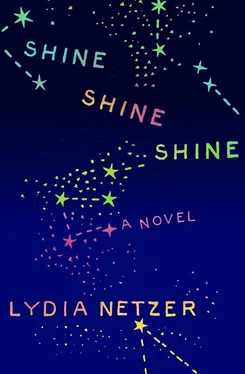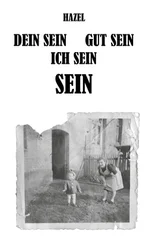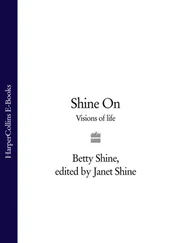“Come back tomorrow,” she had said, squeezing his hand. “Don’t forget.”
Probably, if he was being ruthlessly straight with himself, that was when he had fallen in love.
That was when it had happened.
Down on the Earth that rotated on its own lazy and inscrutable axis, the mother’s brain was still getting oxygen from her blood. She was breathing, she had breathed, drawing air in rattling gasps on and on through the night. When morning came to the world outside the hospital, she was still alive. She had gone from ICU to a private room on a metal gurney, but her long body was not aware of this. Her body was paying attention only on the inside. Its organs were full of tiny motions, dark processes. The body was preserving itself from death, denying its own rotten condition, living. It was doing the same thing all the other bodies on Earth were doing, in their own boxes of rooms and long corridors and dark cellars and flying down the highways in little cars and down railways in closed compartments. The body was staving off death for yet a little while. It was a fetus in a womb, unwilling to come out, though the labor had begun, the contractions had started, and the blood was getting thin.
The dark room, the dripping walls, the bloody entry, the stern contractions of the hallway, were resisted by the mother. There were no robots to help her now. They had all been removed: the breathing one, the circulating one, and mostly the tracking beeping one. She was alone in her bed; only the biological robot in her skull remained to keep her cells alive. She was alone from her family, alone from all of history, and the more the room pushed in on her, the more her brain pushed back. She would not die. She could not die. She could see her daughter in a dream, walking around like a kitten with its feet in boots, shaking its paws, running into walls. She couldn’t die and leave Sunny here on Earth.
* * *
IN THE BIG HOUSE on Harrington Avenue, Sunny stood at the kitchen counter, bald as an egg, curtains wide, and opened three orange bottles of Bubber’s medications. She set them out in front of her on the smooth granite countertop. Bubber stood next to her, solemnly, his footed pajamas wrinkled around his ankles, snapped together at the waist. He was waiting to take his medicine. Then he would watch two episodes of Blue’s Clues . Then he would go to school. Except that today, Sunny had decided that he would neither take the medicine nor go to school. He would stay home and be unmedicated. See what happened. See if the roof flew off the world. See if the doctors came and stood in the yard, waving clipboards and adjusting their glasses. If she had to bar the door and put the sofa in front of it, no one would come in and put a medicine into her child. Whether the walls came down, whether he turned into a werewolf and devoured her, whether he said, distinctly, “Give me the medicine. It’s what I really, secretly want,” she would not give in. She would learn exactly what he was without the medicine to make it easier. She would watch him all day. If a fit came, she would sit on him.
“No medicine today, Bubber,” she said. She poured the pills out on the counter and they mixed together, blue with white tablets with the green capsules. Bubber watched her. He had his blanket around his shoulders, a flannel shirt of Maxon’s, ancient and soft and full of holes. His bright blue eyes regarded her. “It’s okay,” she said to him softly. “No school, no medicine.”
“Where’s Dad?” said Bubber loudly, like a duck. After he was done talking, his mouth hung open and he breathed through it.
“Daddy is on the rocket. He’s taking the robots to the moon. But I know he’s glad you’re thinking about him.”
“I know,” said Bubber. He looked at the clock. “ Blue’s Clues, ” he said.
Sunny swept the pills into the trash can and they fell down around the garbage, down to the bottom of the can where it was wet. She watched Bubber trot into the living room. What would happen? She thought maybe she should put his helmet on. He put the DVD expertly into the machine and pressed the button on the remote, sat down in front of the TV. His face went brighter when the characters came on the screen and she watched him sing, talk, move his shoulders up and down exactly in time with Steve and Blue. He had it all memorized. Elmo, too. And all of Dr. Seuss. He had memorized the inflections, the facial expressions. He could always do it. It was all a flawless replication, as many times as he tried.
Maybe without the medicine, he would have a facial expression he made up by himself. A new one. She feared it would be rage. Or sorrow. Or hate. What would his brain put out, given rein to put out anything it chose? Then the hospital called. They said: “Your mother is still alive. Will you be visiting today?” She said: “We will have to see how it goes. My son is having a medical emergency.” They said: “She will not hang on for long. This might be your last chance to say good-bye.” Sunny had already said good-bye. She didn’t want to say good-bye again. She wanted it to be a week from now, or ten days ago, or ten years ago, when she was still certifiably alive, before everything had happened: the cancer, the pregnancies, the wigs. There were too many things happening at once and one of them had to go.
Sunny smoothed her hand over her scalp. She had taken the mother off life support. She had taken the child off medicine. She had taken herself off wigs, eyebrows, her urban housewife costume disguise. She couldn’t do anything else to speed the end times, but the end times refused to come. Someone should come to the door, pronounce her unfit, the charade over, but no one came. The musical sounds of Blue’s Clues tinkled in the living room with Bubber’s peaceful echo, and Sunny wished that Maxon would turn the rocket around and come straight the hell home. She moved through the house over the dark walnut floors, those wide planks, polished weekly, stained perfectly. She stood behind Maxon’s empty chair in Maxon’s empty office, and looked at his desk. Inside the desk somewhere were papers, official papers that would be needed soon. She would need her mother’s will. She would need insurance documents. Her mother’s, and maybe Maxon’s. After all, Maxon might never come home. Astronauts died. They also decided they liked space, living in space suits, orbiting other astral bodies. They stayed away, forgot they had homes, families, bald wives, crazy children, cancerous mothers-in-law.
Sunny decided she would open up the desk drawers, and find the necessary paperwork for herself. Behave in a way that she might have behaved before she became a mother. Make phone calls. Decide what to do with all their real estate. Sort things out. Hold people’s feet to the fire. Page through sheaves of paperwork and light on an important line here, a contradictory line there, shout, AHA! She lowered herself into Maxon’s chair. She opened the one shaped like a file cabinet, and there were files all neatly labeled, everything she could ever need: insurance, mortgage, and one labeled in block letters: MOTHER. She pulled the file out and sat with it on her lap for a while, then set it aside. Then she opened all the other drawers except one. It was locked.
A locked drawer. In the other drawers she had found neatly organized office supplies, ordered papers, logical files. But here was a long flat drawer locked with a key. The key was not there. Why was it locked? Locked against whom? What could Maxon possibly have to hide?
* * *
SHE REMEMBERED A TIME before she had agreed to marry Maxon, when she had fallen superficially in love with a man who had a lot of hair. This was during college, when she was away from both Maxon and her mother, far away in another state. In college she studied art and math. She was a wigmaker and bald, so she attracted a lot of attention and people knew who she was. She cut an important and contradictory profile on the campus of her college, which was small and liberal, across the Pennsylvania border, in Ohio.
Читать дальше









